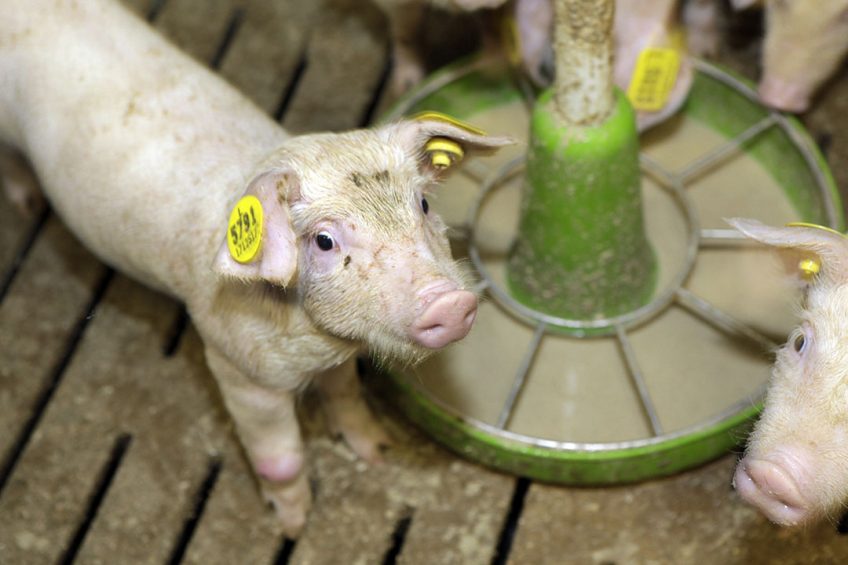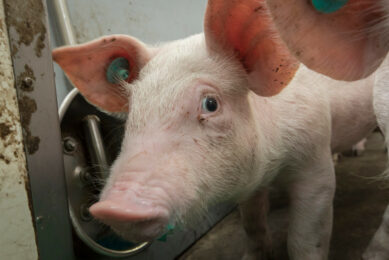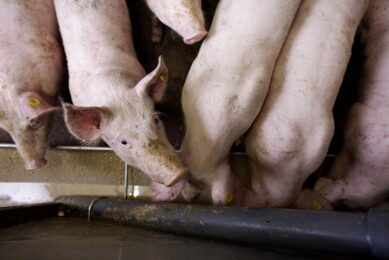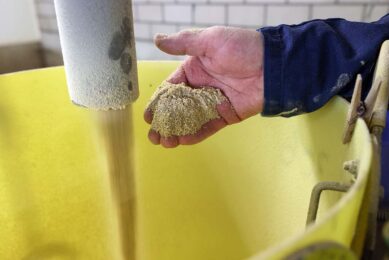New terminology for swine diet formulation

Alterbiotics, ideal proteins, eubiotics – sometimes it is hard to keep up with new terminology entering the world of pig production. Do they really make a difference with existing strategies? It got swine technology expert Dr Casey Bradley thinking about what future feed formulation will look like.
Swine nutrition is ever-evolving, and as we adapt we create new terminology, methodologies and methods for formulating swine rations. During the recent American Society of Animal Science (ASAS) Midwest meetings, Cargill discussed their approach to calculating and formulating fermentable protein versus the traditional fibre and fermentation synergy. Furthermore, Dr Crystal Loving introduced a new word to me, “alterbiotics”, which are alternatives to antibiotics.
These would be known as “eubiotics” from a DSM nutritional perspective.
Furthermore, in a neglected area of swine nutrition, PIC described their new Optimal Boar Feeding Tool, which I found to be a great start to developing tools for an important component of our herd, yet still needs some fine tuning.
New concepts and swine diet formulation
With all these new concepts it is hard to keep up with how you should be formulating swine diets, and we are all still changing the basic concepts of replacing one ingredient with another or basing feed intake on energy or protein content of diets.
1 of the resounding messages from the meetings is that we have come a long way in nutrition, but our job will never be done in optimising formulas for both performance and health. But I would have to agree with Dr Loving that in the future we will need to formulate for an individual herd or group of pigs based on a complex matrix of genetics, feedstuffs, health and microbiome.
Post-weaning diarrhoea: still a major problem
Post-weaning diarrhoea is still a major problem for the industry, whether it is due to the removal of pharmacological levels of zinc oxide, antibiotics, specialty feedstuffs or a disease challenge itself. That is why I was excited to learn more about Cargill’s perspective on fermentable protein and the opportunity to either lower crude protein or reduce scours post-weaning.
In both experiments, reducing fermentable protein optimised performance, as I would have anticipated. But is this strategy to formulate nursery diets much different from the other concepts of “ideal protein” or “precision nutrition” or – my crazy new term – “archetypal protein”?
The major flaws I find in all these methodologies is that they do not consider the benefits or synergies of feed additives, such as enzymes or organic acids. The end game is all the same: digest the protein in the upper portion of the gastro-intestinal tract, which will prevent the fermentation of protein in the hindgut while making the animal as efficient as possible.

Pig Progress experts talkTo read more Pig Progress expert opinions
More robust matrix for formulation
Will the future of these concepts need different strategies or a more robust matrix for formulation than today’s general least-cost formulation perspectives, as Dr Loving mentioned in her presentation? Let us take it further. What happens if we reduce fermentable protein by 20% in the nursery pig on the mature microbiome, and what is the subsequent finisher performance of these pigs? Or another step: do we create a completely different need in the future offspring of gilts? Do they become naturally more efficient in digesting protein than previous generations?
Obviously, there is job security for us yet, but at the same time the desperate need remains for more advanced tools and analytics to assess the full picture of swine nutrition and health. And yes, we will have more new terminology and nutrients in our formulation models in the future and I hope you welcome them the same as I do.











